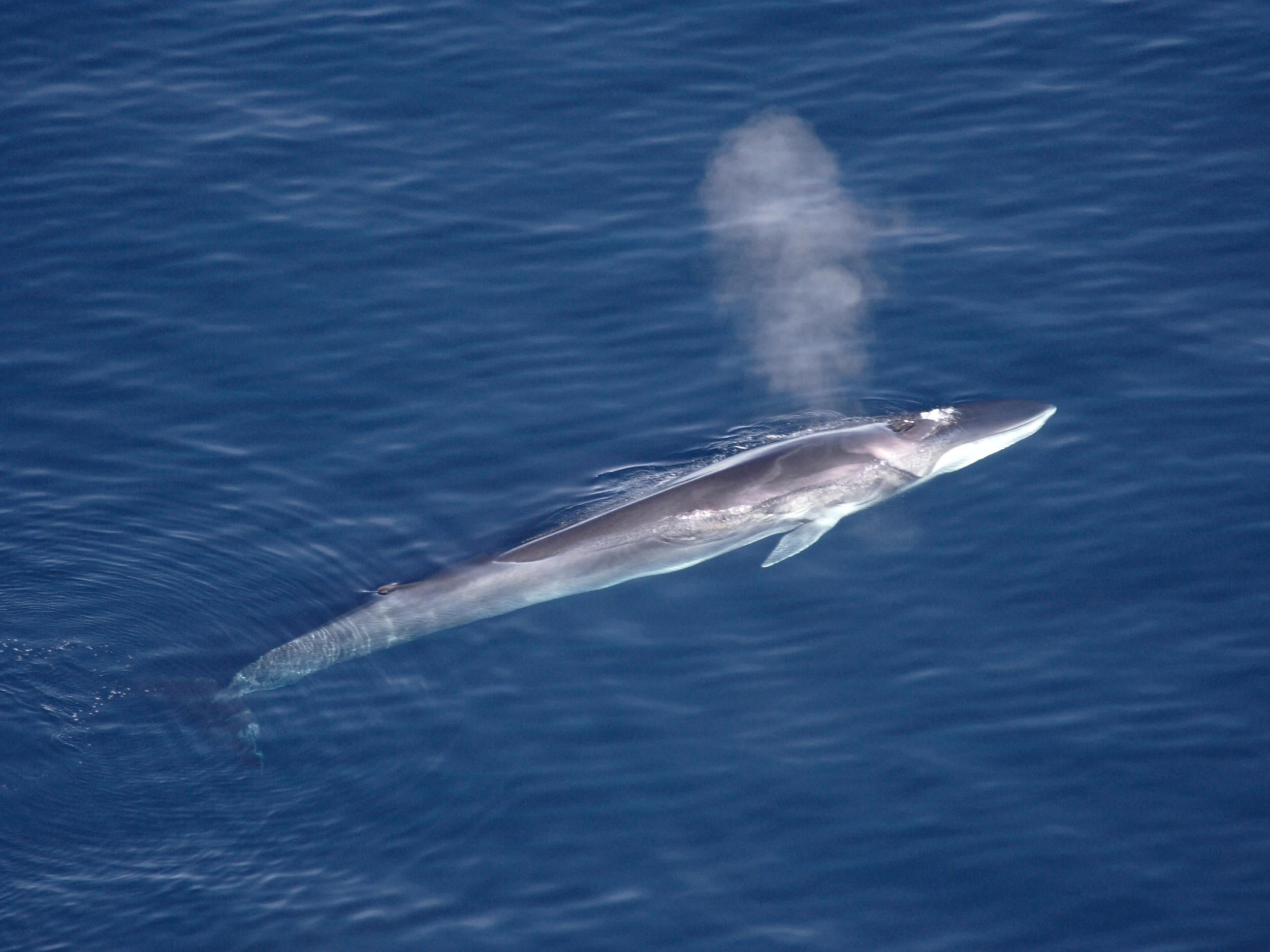Fin whales and mountain gorillas back from the brink of extinction thanks to conservation efforts
‘With sustained, long-term conservation action, we can not only prevent extinctions, but also achieve considerable population recoveries’

Your support helps us to tell the story
From reproductive rights to climate change to Big Tech, The Independent is on the ground when the story is developing. Whether it's investigating the financials of Elon Musk's pro-Trump PAC or producing our latest documentary, 'The A Word', which shines a light on the American women fighting for reproductive rights, we know how important it is to parse out the facts from the messaging.
At such a critical moment in US history, we need reporters on the ground. Your donation allows us to keep sending journalists to speak to both sides of the story.
The Independent is trusted by Americans across the entire political spectrum. And unlike many other quality news outlets, we choose not to lock Americans out of our reporting and analysis with paywalls. We believe quality journalism should be available to everyone, paid for by those who can afford it.
Your support makes all the difference.There is hope for the survival of fin whales and mountain gorillas after conservationists announced both species have been pulled back from the brink of extinction.
After decades of persecution by whaling vessels and poachers, modern efforts to protect these mammals appear to be working as their numbers have started to recover.
The International Union for Conservation of Nature (IUCN) maintains a “red list” to monitor the status of the world’s wildlife, and in its latest update both whales and gorillas have shifted one step further away from becoming new entries on the long list of species wiped out by humanity.
After a recent WWF report revealed 60 per cent of monitored animal populations had been obliterated in the space of decades, the announcement shows concerted international action can yield results.
Previously listed as endangered, fin whale numbers have roughly doubled since the 1970s when an international ban on commercial whaling was introduced. The population now stands at 100,000 mature individuals.
There has also been a marked improvement in western populations of grey whales, which are no longer considered critically endangered.

Dr Randall Reeves, chair of the IUCN cetacean specialist group, said it was “a relief” to finally see these populations on the rise.
“These whales are recovering largely thanks to bans on commercial hunting, international agreements and various protection measures. Conservation efforts must continue until the populations are no longer threatened,” he said.
In central Africa, anti-poaching patrols and the concerted removal of snares has helped boost mountain gorilla numbers from 680 individuals a decade ago to over 1,000 now, the highest figure ever recorded.
The IUCN has therefore reclassified the apes from critically endangered to endangered, crediting this small but significant victory to collaborative efforts that have spanned the nations where they reside.
However, they noted that despite the success of this subspecies, the eastern gorilla species to which it belongs remains critically endangered, and the future survival of these apes is still on a knife edge.
“Coordinated efforts through a regional action plan and fully implementing IUCN best practice guidelines for great ape tourism and disease prevention, which recommend limiting numbers of tourists and preventing any close contact with humans, are critical to ensuring a future for the mountain gorilla,” said Dr Liz Williamson of the IUCN primate specialist group.
However, the good news from the IUCN was tempered by reports that overfishing and illegal logging are sending species in parts of the developing world spiralling into decline.
Lack of sustainable fisheries and a boom in demand mean that 13 per cent of the world’s grouper fish are now threatened with extinction, and 9 per cent of the fish in Lake Malawi, according to the IUCN’s latest assessment.
Meanwhile illegal logging has fuelled a 15-fold increase in trade in the Vene timber tree, which the IUCN says is now endangered.
With some nations still holding out on a total whaling ban, and companies accused of fuelling the destruction of rainforests home to orangutans, tigers and rhinos, conservationists are clear that despite some successes urgent international action is needed to end the mass extinction of wildlife.
WWF has called for a “global deal” in the mould of the Paris climate agreement to save nature, and an ongoing UN biodiversity summit in Egypt presents an opportunity for decisive action.
“The recovery of species like mountain gorilla, fin whale and Rothschild’s giraffe demonstrates once again that with sustained, long-term conservation action, we can not only prevent extinctions, but also achieve considerable population recoveries,” said Dominic Jermey, director general of the Zoological Society of London.
“As the world’s governments convene in Egypt to continue discussions around forging a new and ambitious strategic plan for biodiversity, we hope that these examples will embolden countries to make strong commitments that will put the world’s wildlife on a path to recovery.”
Join our commenting forum
Join thought-provoking conversations, follow other Independent readers and see their replies
Comments